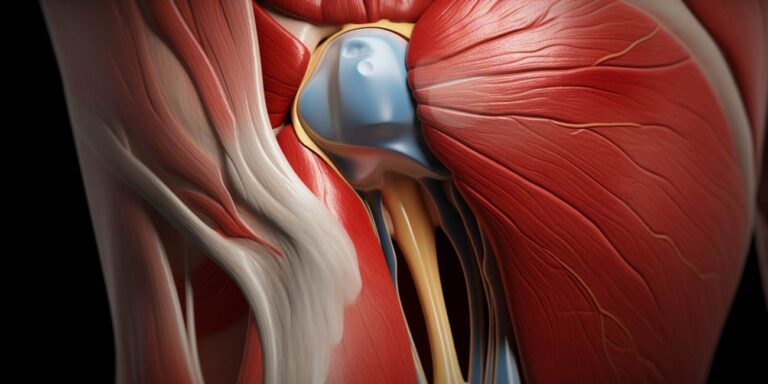Gluteus medius tear symptoms can be a source of discomfort and mobility issues for many individuals. This article aims to provide comprehensive information about the symptoms associated with a gluteus medius tear and how to identify them. We will also explore the causes, diagnosis, and potential treatment options for this condition.
What is a gluteus medius tear?
The gluteus medius is one of the three major muscles in the buttocks, responsible for stabilizing the pelvis and assisting in movements of the hip joint. A gluteus medius tear refers to the partial or complete rupture of this muscle. This injury can occur gradually over time or suddenly due to trauma.
Common gluteus medius tear symptoms
Recognizing the symptoms of a gluteus medius tear is crucial for prompt diagnosis and treatment. Here are some common signs to look out for:
- Pain in the Hip: One of the primary symptoms is pain in the outer part of the hip, which may radiate down the thigh. The pain is often sharp and worsens with certain movements.
- Weakened Hip Muscles: A gluteus medius tear can lead to weakness in the hip muscles, making it difficult to perform activities that involve hip abduction, such as walking or climbing stairs.
- Limping: Many individuals with this condition develop a noticeable limp, especially when walking or running.
- Tenderness and Swelling: The affected area may become tender to the touch, and swelling may occur as a result of the injury.
- Difficulty Sleeping: Pain from a gluteus medius tear can make it challenging to find a comfortable sleeping position, particularly when lying on the affected side.
Causes of gluteus medius tears
Several factors can contribute to the development of a gluteus medius tear. These include:
- Overuse: Repetitive motions or excessive strain on the gluteus medius muscle, often seen in athletes or individuals with physically demanding jobs, can lead to tears over time.
- Trauma: Acute injuries, such as a fall or a direct blow to the buttocks, can cause immediate tears in the muscle.
- Aging: As we age, the tendons and muscles in our bodies become less flexible and more prone to injury, making older adults more susceptible to gluteus medius tears.
Diagnosing gluteus medius tear
If you suspect you have a gluteus medius tear based on your symptoms, it is essential to consult a healthcare professional. Diagnosis typically involves a combination of:
- Physical Examination: Your doctor will assess your range of motion, strength, and tenderness in the affected hip.
- Imaging Tests: X-rays, MRIs, or ultrasounds may be ordered to visualize the extent of the tear and rule out other possible causes of your symptoms.
Treatment options
The treatment approach for a gluteus medius tear depends on the severity of the injury. Here are some common treatment options:
- Rest and Physical Therapy: Mild tears may heal with rest and targeted physical therapy to strengthen the surrounding muscles.
- Medications: Pain relievers and anti-inflammatory medications may be prescribed to manage pain and reduce inflammation.
- Injections: Corticosteroid injections can provide temporary relief from pain and inflammation.
- Surgery: In severe cases, surgical repair of the torn muscle may be necessary. This is usually considered when conservative treatments do not yield results.
Can a gluteus medius tear heal on its own?
Minor tears may heal with rest and physical therapy, but more severe tears often require medical intervention.
How long does it take to recover from gluteus medius tear surgery?
Recovery time can vary, but it may take several months to regain full strength and mobility after surgical repair.
Are there ways to prevent gluteus medius tears?
While not entirely preventable, maintaining a strong and flexible hip region through exercise and avoiding overuse can reduce the risk of tears.
Can i continue to exercise with a gluteus medius tear?
It’s essential to consult your healthcare provider. In some cases, modified exercises may be possible, but high-impact activities should be avoided.
Is surgery the only option for a gluteus medius tear?
No, surgery is reserved for severe cases. Many people find relief with non-surgical treatments like physical therapy and medication.
In conclusion, recognizing the symptoms of a gluteus medius tear is crucial for timely diagnosis and appropriate treatment. If you suspect you have this condition, consult a healthcare professional for a proper evaluation and personalized care plan.
See also:





